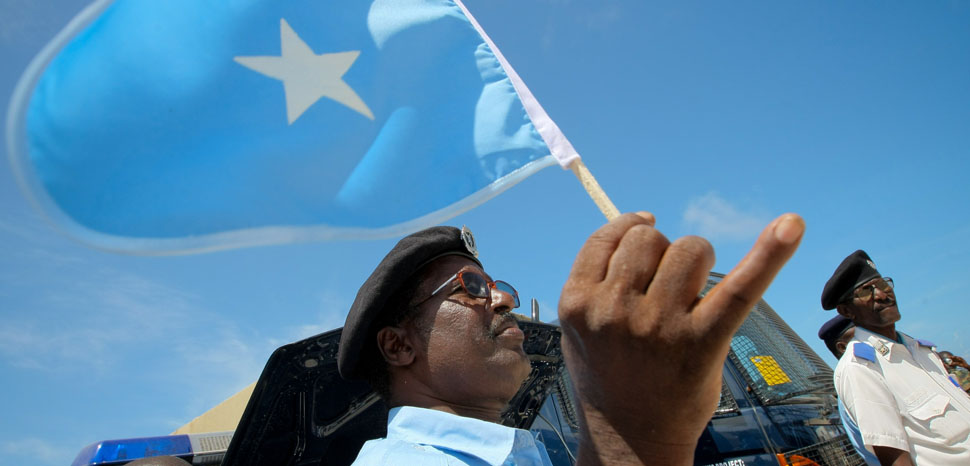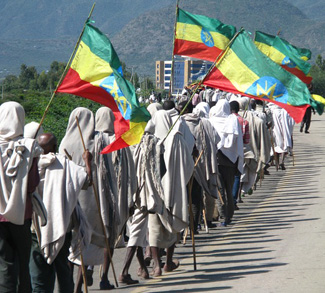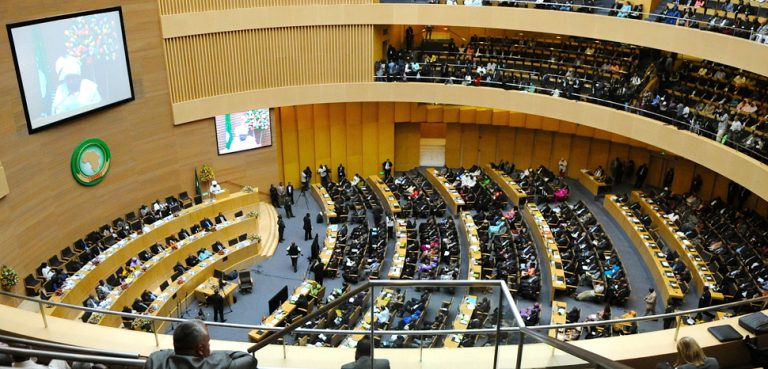Somalia’s sitting President, Mohamed Abdullahi Mohamed, also known as ‘Farmaajo,’ was required to step down on February 8, after his government mandate expired and a new leader had been selected via presidential elections. But this didn’t happen; rather, dispute and disagreement over the electoral process derailed the polls and left Somalia in a state of political gridlock.
Government opposition have stated that they no longer recognize the authority of the de facto president, who currently occupies Somalia’s highest seat without a mandate. Numerous stalled talks between the government and opposition forces continue to heighten the political impasse.
Electoral arrangements have been a key issue for the Somali government in the lead-up to the expected presidential hand-over. An agreement was reached in mid-September of last year which laid out a timeline for forthcoming elections. This agreement, devised in an attempt to prevent situation in which Farmaajo’s mandate expired without locking in new parliamentary and presidential elections, was not honored. Consequently, rampant disputes between government and opposition have left Somalia in the very political position the agreement had explicitly tried to avoid.
Even before the mid-September accord, it was apparent that fruitful discussions were unlikely. Disagreements over election conduct are unresolved and simmering conflicts between Somalia’s capital and five semi-autonomous federal states, mostly regarding resources and power-sharing, continue to amplify tensions.
Farmaajo, who seeks to extend his rule with another four-year term, has been accused of gerrymandering to the point where federal state leaders and opposition candidates walked out of the negotiations, effectively withdrawing from the election process until the president stepped down.
Political figures on both sides of the dispute have publicly blamed their opponents, indicating that the country is still far from political cohesion. Ahmed Madobe, leader of Jubbaland, a federal member state in southern Somalia where the president has been battling for control, demanded that Farmaajo ‘stop meddling’ in the election process, and accused him of rejecting ‘every possible solution’ offered to resolve the stalemate. Sources from the president’s camp, such as Information Minister Osman Dubbe, claim the opposite, that the government has shown ‘flexibility to compromise and readiness to negotiate’ that have been ‘exploited and refused’ by Jubbaland representatives.
Farmaajo believes that extending his mandate is justified in order to avoid a political vacuum forming. Opposition leaders, who believe the president is responsible for the deadlock in the first place, have not acquiesced, urging Farmaajo to ‘respect the constitution.’
The current constitution was adopted in 2012 with an aim of stabilizing a country long ravaged by intermittent conflict, and it stipulates a four-year term for the presidency. It came after a string of successive governments failed to establish a nation-wide rule following the collapse of Major Siad Barre’s military dictatorship in 1991. The document was originally hailed as a turning point for Somalia, garnering significant international recognition.
Yet momentous though it may have been at the time, the provisional constitution also contained a number of institutional oversights that have consistently produced political tensions. Free and fair elections have been at the center of the recent incongruity, with opposition members, including the Speaker of the Senate, claiming Farmaajo’s actions in the lead up to the impasse represent an ‘astonishing violation’ of the constitution. Presidential efforts during Farmaajo’s tenure to exert increased political control over the federal states, including the forceful replacement of state leaders with his allies, have further damaged a political system that is overwhelmingly dependent on the relationship between its regional governments and the capital.
The mid-September talks culminated in a decision that Somalia would use the same election method employed in the February 2017 polls. This electoral college system saw Farmaajo elected by the 328 members of the upper and lower houses of parliament, who in turn had been elected in 2016 parliamentary election by 14,025 clan elders. Though Somalia’s inaugural 2012 presidential elections were decided by a comparatively small 135 clan elders, the 2017 election was no giant leap forward. It was rife with lobbying, corruption, and international involvement. A report by the United Nations Security Council found evidence of ‘bribery, fraud, and threat of violence aimed at candidates, elders and members of the electoral college.’ The electoral college was due to make a return in the 2021 election, aiming to increase inclusivity and transparency through the involvement of 27,775 voting delegates.
This complex and centralized electoral college system has been the second-choice electoral method for Somalia over the last decade. The nation set itself the goal of holding its first fully democratic ‘one-man one-vote’ election since 1969, a pursuit described by the United Nations as a ‘historic milestone’ on the country’s path to full democratization and peace. This was suggested and abandoned in both the 2017 and 2021 election discussions due to tensions between the states, logistical and technical issues, and most notably the security challenges posed by al-Shabab.
While a ‘one-man one vote’ election enfranchises much of the Somali populace, it is not without security concerns. Al-Shabab, translated as ‘the youth’ in Arabic, is an al-Qaeda-linked terrorist group based in Somalia, which has already been capitalizing on confusion surrounding the election. Upon the president’s arrival in Mogadishu to kick off election talks last week, al-Shabab claimed an attack on the Afrik Hotel, a known gathering place for Somali government officials. Five people and four attackers were killed. Al-Shabab attacks have littered Somalia and neighboring Kenya in recent years, capitalizing on the weakness of Somalia’s central government. The threat posed to Somali civilians by this terrorist group has hindered the pursuit of widespread polling and has further exacerbated the ongoing political impasse.
Political gridlock is only one of the many problems Somalia currently faces. On February 2nd, a national state of emergency was declared as locusts spread across east Africa, with the minister of agriculture warning that the insects posed a ‘major threat to Somalia’s fragile food situation.’ Health authorities have also stated that the country is being hit by a second wave of coronavirus, with cases increasing 52% in February compared to January, attributed to election-related large-scale gatherings.
The international response to the political situation has been consistent, with many countries calling on both the government and opposition to persevere with discussions and overcome the impasse. A joint press statement from the International Partners of the United Nations Assistance Mission in Somalia called on participants to ‘engage actively’ in finding a fair solution and the ‘rapid delivery of elections throughout Somalia.’ The UN, African Union, and other international partners warned that any measures short of an agreed electoral process would ‘not obtain support’ of international partners.
Tensions in Somalia are beginning to reach a fever pitch, with widespread protests in the capital spilling over into violence. The army reported an attack on one its bases, even after public gatherings were banned on Wednesday in an effort to curb the spread of coronavirus.
With the adoption of the 2012 constitution, Somalia seemed to be on the road to building institutions capable of sustaining high-level political dialogue among the country’s diverse regions. But now nearly a decade later, it appears as though Somalia is once again on the brink of state collapse, with no end to the gridlock in sight.
The views expressed in this article are those of the authors alone and do not necessarily reflect those of Geopoliticalmonitor.com or any institutions with which the authors are associated.




